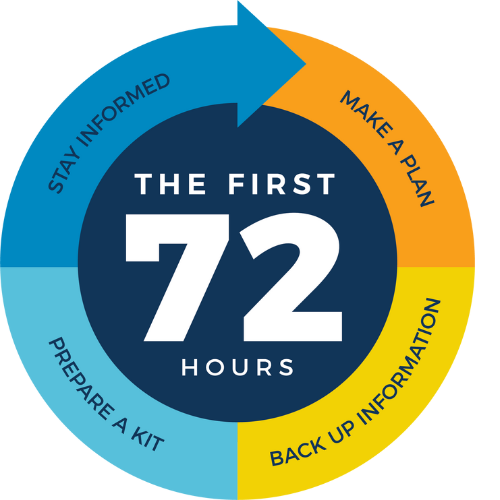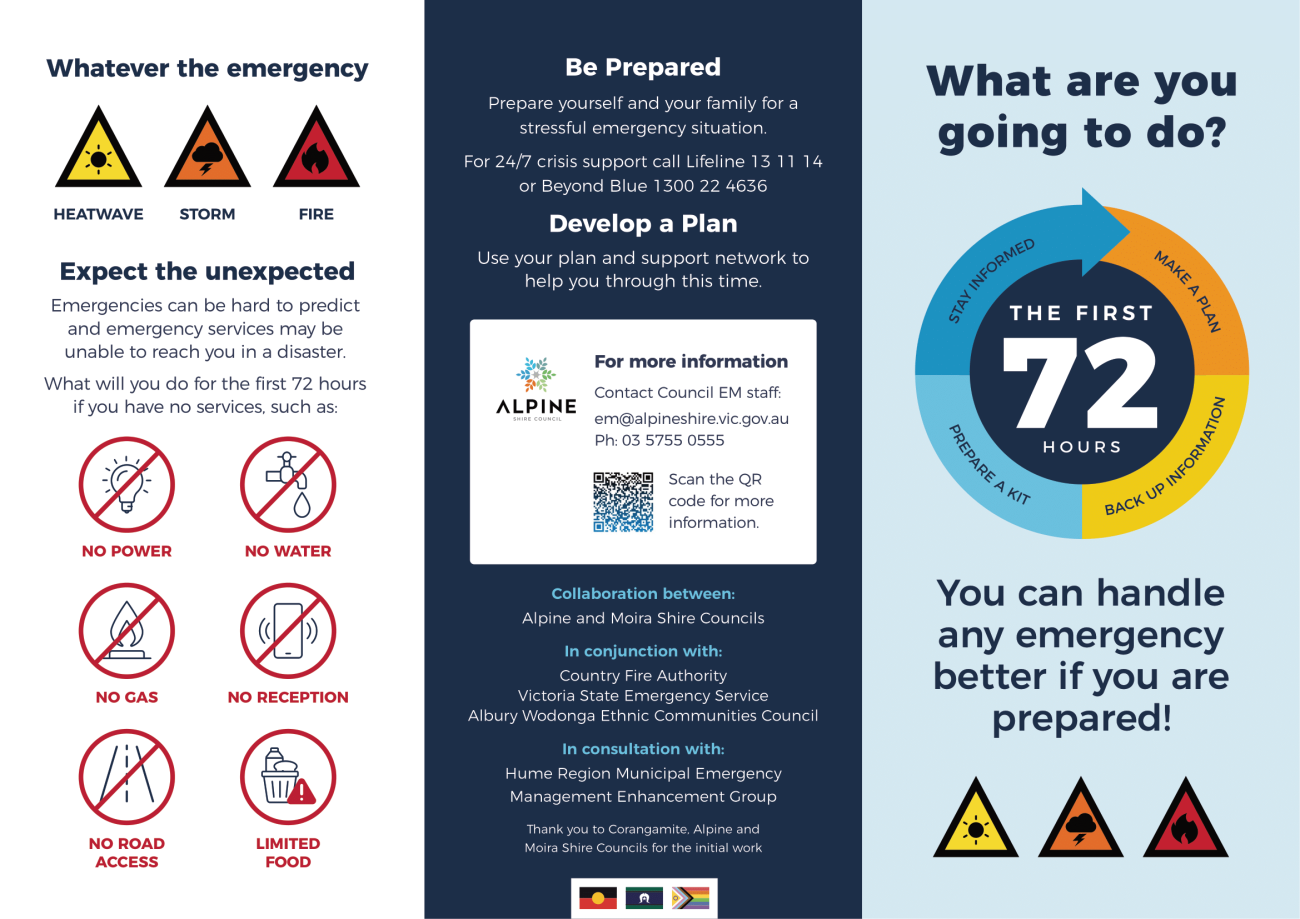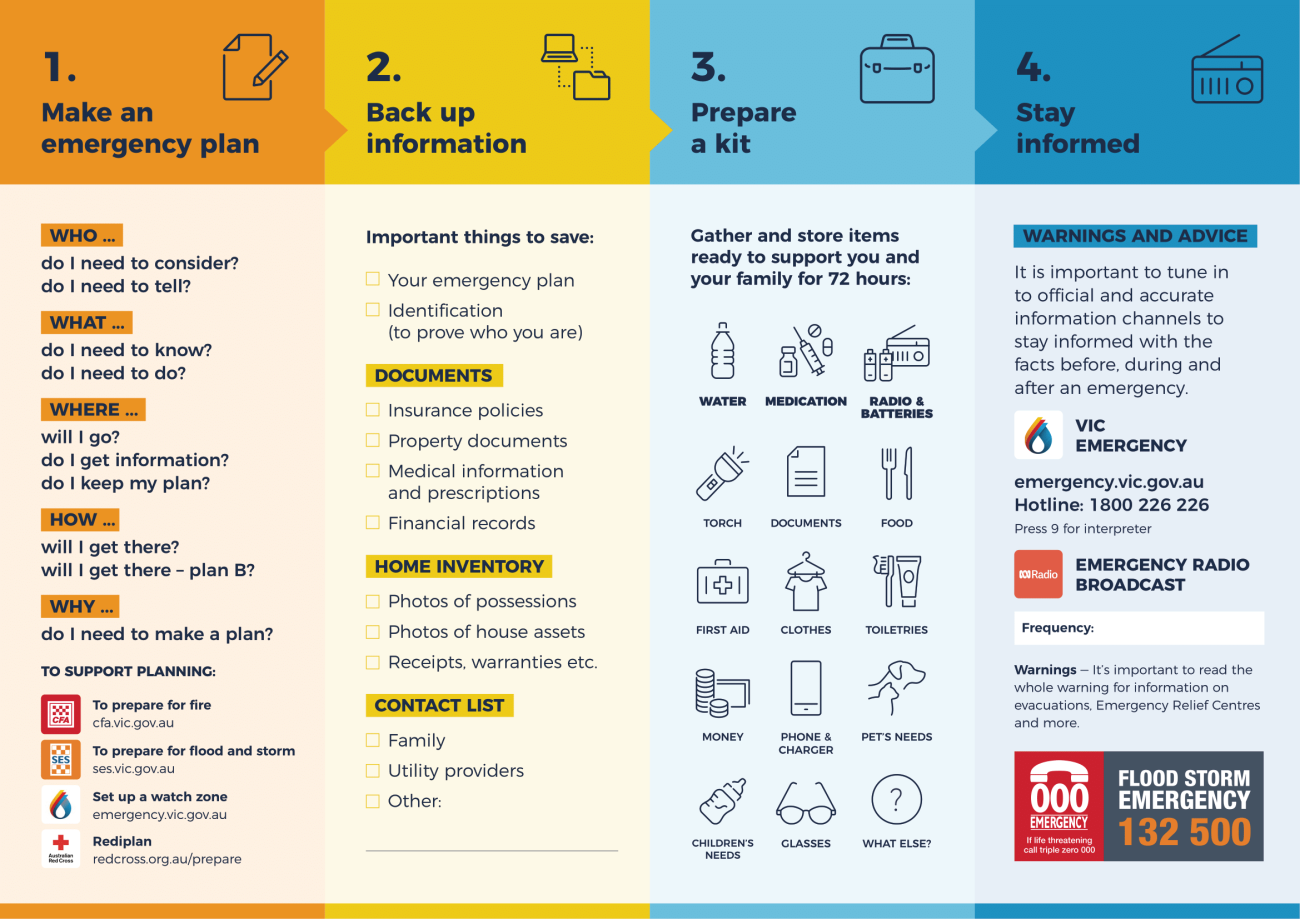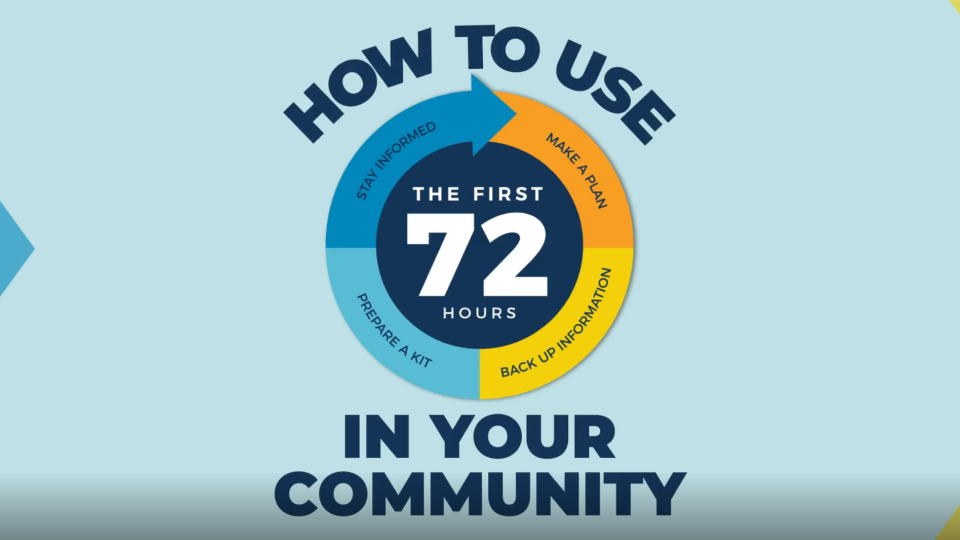What would you do if you were in an emergency situation and couldn't receive professional help for 72 hours?
Expect the unexpected
What will you do for the first 72 hours if you have no access to services such as power, water, gas, reception, road access, or limited food?
Emergencies can be hard to predict, and emergency services may be unable to reach you in a disaster. The First 72 Hours supports you to create an Emergency Plan for your household or business. Building a safer and more resilient community is a shared responsibility across everyone in Victoria, not just those in the Emergency Management sector.

The First 72 Hours program



1. Make an emergency plan
Download the Emergency Plan template and fill it out using the following prompts:
- What emergency event is your plan for? Is the event a flood, fire, storm, or another emergency?
- Who needs to be considered in your plan? Do you need to consider household members, neighbours, or immediate family who don't live in the same house as you?
- Who is your emergency contact? Who can you reach out to in an emergency situation?
- Where will you go if you have to leave home? Do you have family or friends nearby? Do you need to book a place to stay?
- Where do you get your information from? Do you know websites to visit and what radio stations to listen to?
- How will you evacuate or travel somewhere safer? Will you drive yourself or will you get a lift with someone else?

2. Back up information
Consider the important things to save:
- Emergency Plans
- Identification (for everyone in your household)
- Important documents (such as medical information, finances, and insurance)
- Home inventories (including photos of your possessions, house assets, receipts or warranties)
- Contact list (of family members and utility providers)

3. Prepare a kit
Gather and store items ready to support you and your loved ones for 72 hours. Consider if your emergency kit will include:
- Water or food
- Medication
- First Aid
- Radio and batteries
- Torch
- Toiletries
- Documents
- Clothes
- Money
- Childrens' needs
- Pets' needs

4. Stay informed
It is important to tune into official and accurate information channels to stay informed with the facts before, during, and after an emergency.
How to use The First 72 Hours in your community
Partners and collaboration
The First 72 Hours was developed by Alpine Shire Council and Moira Shire Council in conjunction with Country Fire Authority (CFA), Victoria State Emergency Service (VICSES), and Albury Wodonga Ethnic Communities Council (AWECC) and in consultation with the Hume Region Municipal Emergency Management Enhancement Group.

